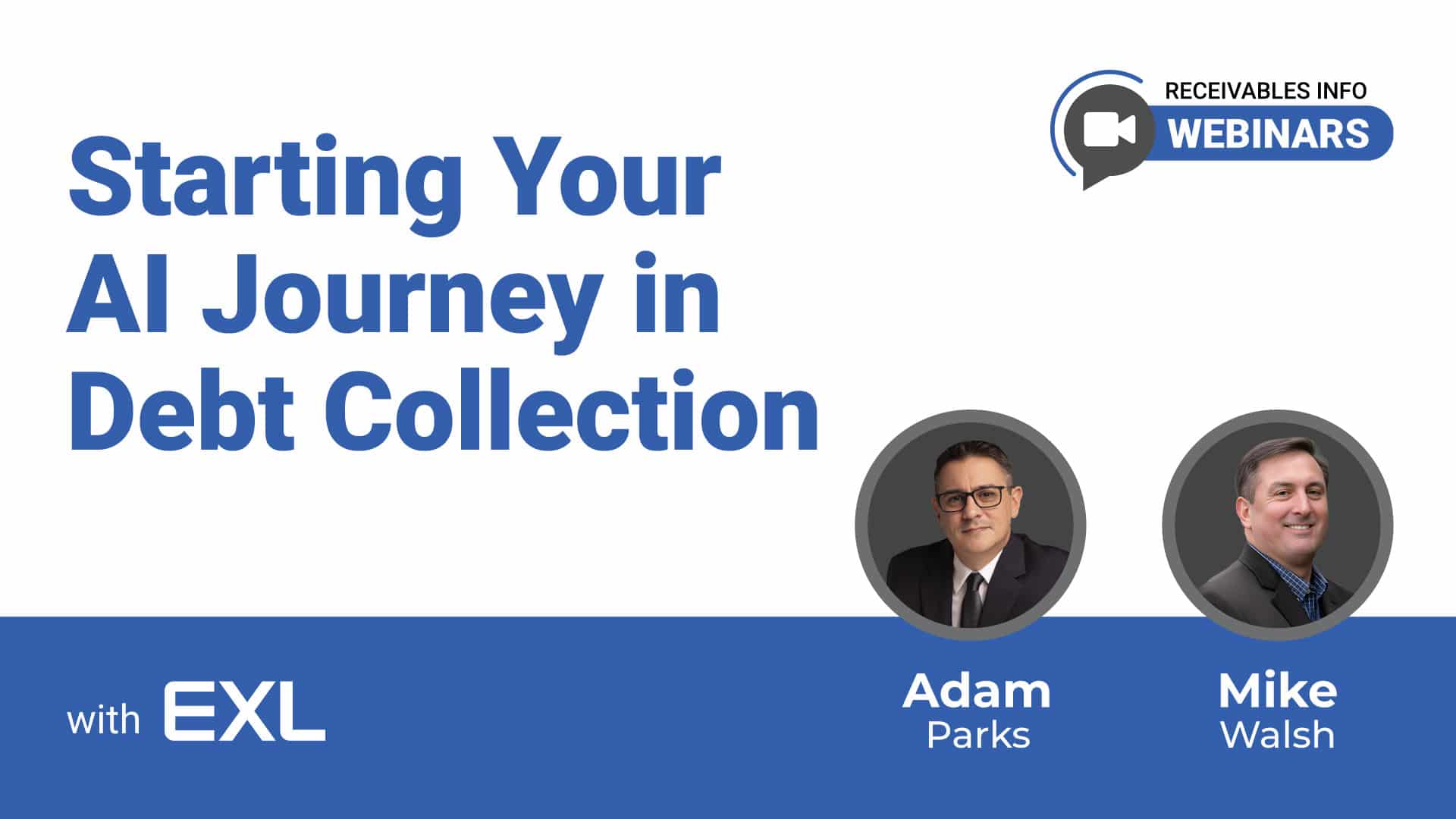
Operationalize AI in Collections: How Industry Experts Are Driving Compliance and Innovation
Introduction
Artificial Intelligence (AI) is reshaping the debt collection industry faster than many organizations can adapt. Learning how to operationalize AI in collections is no longer optional—it is essential for firms that want to thrive in a compliance-driven environment. In this webinar replay, “The AI Gameplan for Debt Collection Professionals,” industry leaders Mike Walsh from EXL and Adam Parks from Receivables Info reveal how successful companies are adopting AI, mitigating risk, and increasing ROI in debt recovery operations.
The Evolution of AI in Debt Collection
The evolution of AI has brought revolutionary changes to the debt collection industry. Organizations now rely on machine learning algorithms to:
- Segment consumers more effectively
- Predict payment outcomes
- Automate compliance monitoring
- Enhance self-service options for debtors
Mike Walsh explains, “Operationalizing AI in collections requires more than plugging in a tool. It demands structured governance, data integrity, and phased execution to ensure long-term success.“
This transformation is not without challenges. With the rise of AI governance concerns, data privacy regulations, and consumer protection expectations, companies must be proactive in building AI strategies that meet both operational and legal standards.
How to Operationalize AI in Debt Collection
Define Your Purpose
The first step in successfully implementing AI is defining whether the technology will be used internally (e.g., audit automation, internal analytics) or externally (e.g., consumer negotiation, self-service portals).
Start with High-Impact Use Cases
Focus initial deployments on use cases that:
- Enhance agent productivity (e.g., intelligent email and SMS)
- Increase self-service payments via portals
- Optimize consumer engagement strategies
Ensure Robust Model Governance
Model governance is crucial. Companies must:
- Understand what data is training their models
- Ensure protected attributes like race, gender, and zip code are excluded
- Regularly audit AI decision-making processes for transparency
“Bias prevention must be built into your models from day one to avoid compliance disasters later,” emphasized Adam Parks.
Build Data Privacy into AI Operations
Data privacy concerns are front and center. Organizations need to ensure:
- GDPR, CCPA, and applicable state compliance frameworks are integrated
- Data storage is segmented, encrypted, and properly governed
- Vendors and 4th-party services adhere to strict privacy standards
Execute in Phases
Rather than attempting to overhaul operations overnight, phased AI adoption allows for:
- Testing
- Client-by-client scaling
- Measuring lift and ROI with clear control groups
How AI Governance Impacts Collections Success
AI Governance in debt collection is no longer a back-office concept. It is now a frontline requirement for creditor trust and regulatory compliance.
Key Governance Measures:
- Vendor assessments: Do they control their data sources?
- Transparency: Is the AI decision-making process explainable?
- Risk audits: Is bias evaluated proactively, not retroactively?
Successful AI governance provides more than compliance; it builds competitive advantage by ensuring trust with clients and consumers alike.
Best Practices for Debt Collection Technology Trends
Templated vs. Agentic AI
Templated AI tools use pre-programmed responses and minimize risk. Agentic AI tools, which make real-time decisions based on inputs, offer greater power but also introduce higher risks of bias or hallucination. Starting with templated systems ensures compliance while building confidence.
Flexible Data Management
Strong data management practices underpin AI success. Only 7–9 fields of data are typically needed to train effective models. Simpler is often better.
Consumer-Centric Innovation
Collections organizations are investing in smarter consumer engagement:
- 88% now use online self-service portals
- 74% use email as a primary communication channel
- SMS messaging adoption continues to grow year over year
Actionable Takeaways for Collections Professionals
-
- Define your AI purpose early: Client-facing tools require different compliance oversight than internal automation.
- Govern your AI models: Know your training data, strip out bias-causing attributes, and ensure auditability.
- Prioritize privacy: Follow the strictest global privacy laws and build those frameworks into every vendor and internal system.
- Execute phased rollouts: Build momentum, prove ROI, and mitigate early risk by starting small.
- Communicate openly with clients: Educate them on how your AI tools are governed, audited, and continuously improved.






